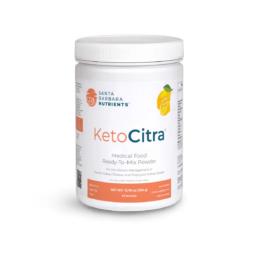Creatine supplements are widely popular among athletes and fitness enthusiasts for improving muscle strength and performance. However, there’s a growing discussion about the potential health implications of long-term creatine use, particularly concerning kidney health. In this blog, we will explore the effects of creatine supplements on the kidneys, backed by scientific research and expert opinions.

By Majd Isreb, MD, FACP, FASN, IFMCP
Introduction to Creatine and Its Popularity
Creatine is a natural substance found in muscle cells, where it helps produce energy during high-intensity exercise or heavy lifting. In supplement form, creatine is often taken to increase muscle mass, enhance strength, and improve exercise performance. Its popularity is evidenced by its widespread use among athletes, bodybuilders, and regular gym-goers looking to gain a competitive edge or improve their fitness levels.
Effects of Creatine Supplements on the Kidneys
The Role of Creatine in the Body
Before discussing the impacts on kidney health, it’s important to understand how creatine functions within the body. When consumed, creatine increases the stores of phosphocreatine in the muscles, which is used to produce more ATP (adenosine triphosphate), the key energy carrier in cells. This process is crucial during times of stress and high energy demand, such as intense physical activity.
Join us to end the kidney disease epidemic
Creatine Metabolism and Kidney Function
The metabolism of creatine produces creatinine, a waste product that the kidneys filter out of the blood. Typically, creatinine levels in the blood are a marker used by medical professionals to evaluate kidney function. Elevated creatinine levels can indicate that the kidneys are not functioning properly.
Research on Creatine and Kidney Health
Numerous studies have investigated whether taking creatine supplements could lead to kidney damage. For healthy individuals, there is no conclusive evidence that moderate creatine supplementation causes harmful effects on the kidneys. A position statement by the International Society of Sports Nutrition published in the “Journal of the International Society of Sports Nutrition” concluded that creatine supplementation is safe.
A review article looked at the safety of creatine supplementation on kidney health. The review found that these supplements are safe for healthy adults at the recommended loading dose of 20 gm/day for five days followed by a maintenance dose of </= 3 gm/day. The review noted an isolated case report of acute kidney injury with the prolonged intake of high doses of creatine (20 gm/d)
However, creatine supplementation may complicate the care of patients with kidney disease since it will increase serum creatinine making measurement of kidney function less accurate. Therefore, caution is advised for those with pre-existing kidney conditions. Some case reports and smaller studies suggest that individuals with renal disease or reduced kidney function should avoid creatine supplements as it may exacerbate their condition.
Creatine supplements and serum creatinine levels
Creatine supplements are known to increase serum creatinine levels, a common biomarker used to assess kidney function. This increase, however, does not necessarily indicate kidney damage but rather reflects an increase in the production of creatinine, a breakdown product of creatine used by muscles.
A review article noted that while creatine supplementation does elevate serum creatinine, it does not impair kidney function in healthy individuals without pre-existing kidney conditions. This suggests that the creatinine level changes are due to increased muscle creatine content rather than actual renal dysfunction.
Therefore, it’s important for both clinicians and patients to understand that creatine supplementation can alter creatinine levels and may affect the interpretation of kidney function tests without necessarily indicating underlying kidney damage.
Practical Tips for Patients Taking Creatine Supplements
It is important for both clinicians and patients to understand that creatine supplementation can increase serum creatinine levels. The following signs can guide the clinician that the elevation in serum creatinine is false and does not warrant any further evaluation:
- The BUN (blood urea nitrogen) is normal. BUN is another waste product that can be elevated in kidney disease. It is not usually accurate, so it is not widely used to estimate kidney function. Patients who are taking creatine supplements will have increased serum creatinine but normal BUN. However, caution should be taken when interpreting this in the face of high protein intake, which may elevate BUN.
- Urinalysis (UA) and urine albumin to creatinine ratio (UACR) are normal. Any abnormalities in UA or UACR may indicate ongoing kidney damage.
- Creatinine clearance is measured by collecting urine for 24 hours. Nephrologists frequently used this measurement to assess kidney function before the development of various equations to estimate GFR. Those taking creatine supplements should have a normal creatinine clearance test.
- Measure Cystatin C levels. Cystatin C is another waste product that is gaining more popularity in estimating GFR. Its level should be normal in patients taking creatine supplements.
- Absence of any other signs of kidney disease, such as electrolyte or acid-base abnormalities.
Join us to end the kidney disease epidemic
Expert Opinions and Recommendations
Medical professionals and nutrition experts generally agree that creatine supplementation is safe. However, they should be used with caution in individuals with known kidney issues. Regular monitoring of kidney function through blood and urine tests is recommended for those who choose to take creatine, particularly if they are using high doses or taking it for extended periods.
Safe Usage Guidelines
For those considering creatine supplements, the following guidelines can help minimize any potential risks:
- Consult a Healthcare Provider: Before starting any supplement regimen, particularly creatine, it’s important to consult with a healthcare provider. This is especially crucial for individuals with pre-existing health conditions or those taking other medications.
- Follow Recommended Doses: Sticking to the recommended dosages can help prevent the potential buildup of creatinine in the blood. The general recommendation for creatine supplementation is 3-5 grams per day after an initial loading phase if one is undertaken.
- Stay Hydrated: Adequate hydration is crucial when taking creatine, as it helps support kidney function and creatinine excretion.
The Bottom Line on Creatine and Kidney Health
Creatine remains one of the most popular and extensively studied supplements in the fitness and sports industry. While it is generally safe for healthy individuals, those with kidney conditions should proceed with caution and under medical supervision. By following proper dosing guidelines and consulting healthcare professionals, most people can safely enjoy the benefits of creatine without compromising their kidney health.







